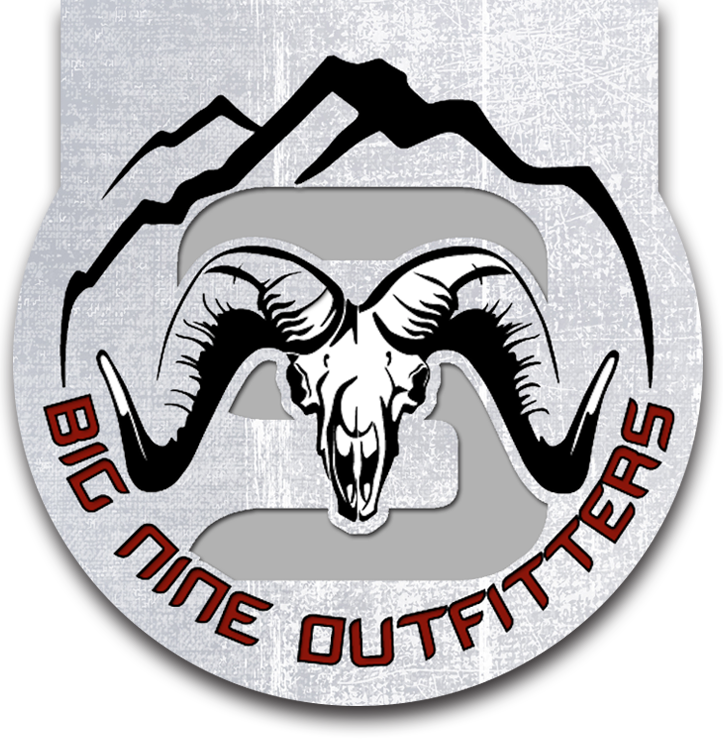Cape & Trophy
Big Nine Outfitters CareA Few Things to Remember when Caping
- Always cut cape off a lot larger than minimum requirements, for shoulder mounts cut at least 1 foot behind shoulders. Be sure there is more than enough for the chest and brisket. Also leave legs long, at least to the knees.
- Skin animal as clean as possible, no holes please.
- Always leave extra length for taxidermists, on the eyelids, lips and nostrils.
- Split the nostrils (should be 2 tubes)
- Turn ears right to the ends.
- “Flesh Out” lips on Moose, Elk, Caribou, and Deer. Lips on smaller animals need only to be split
- Split eye lids
- Don’t forget to split waddle on a Moose, if it has a bell, split it also
- If client plans on doing a standing full mount, do the main cut from base of tail all the way up to the horns, on legs do a short cut from ankle to elbow
- For laying down mounts do body cuts on belly and inside of legs. A small cut from horns down the back of the neck will be required to get the hide over the horns
- Remove last knuckle joint on all legs and toes, very very important
- Use lots of salt and rub it into every square inch, don’t forget to get salt into all split areas. Sheep and goats must be done with pure white salt, all others can be done with coarser salt that has red tint. Salt only in designated salting area. DO NOT SALT CAPES IN THE CAMPS
- ROLL CAPE UP SKIN TO SKIN, HAIR TO HAIR AND TIE SNUG WITH ROPE OR CORD.”DO NOT PUT IN A BAG”
- Leave rolled up somewhere that it can drain for 3 days in warm weather or up to 7 days in cold temperatures. Unroll and shake out the salt and re salt and tie it up for an additional 3 or 4 days. After this, shake out salt and hang to dry in air
- Make sure the rolled up cape is hung high enough so a bear can’t get it down.
- “ALWAYS TAG THE CAPE” (not the rope or twine) with all hunters information
- Clean skull and tag with the hunter’s information, it’s also a good idea to write hunters name on the skull with a felt pen
- For those new to capping be sure to have a senior guide check your work before salting and rolling the cape up. Don’t be afraid to ask for help if your not sure how to do something
- “DO NOT” neglect your cape or horns, this part of your job is priority

